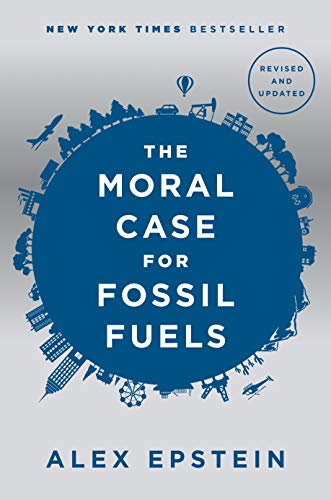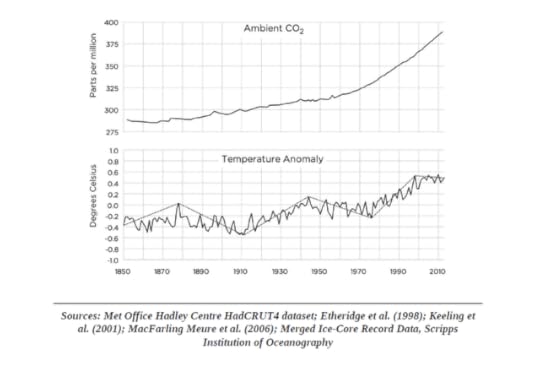What do you think?
Rate this book


Kindle Edition
First published November 13, 2014

"...But, we are told, this cannot continue.
While it might be convenient to drive gasoline cars and get electricity from coal in the short run, and while we might have needed them in the past, the argument goes, in the long run we are making our climate unlivable, destroying our environment, and depleting our resources. We must and can replace fossil fuels with renewable, green, climate-friendly energy from solar, wind, and biomass (plants).
This is not a liberal view or a conservative view; it’s a view that almost everyone holds in one form or another. Even fossil fuel companies make statements like the one the former CEO of Shell made in 2013: “We believe climate change is real and time is running out to take real action to reduce greenhouse gas emissions.”3 President George W. Bush was the person who popularized the expression “addicted to oil.”4 The debate over our addiction to fossil fuels is usually over how dangerous the addiction is and how quickly we can get rid of it—not whether we have one."
"This is the challenge: finding a source of energy that is cheap, plentiful, reliable, and scalable. As we’ve seen, it’s a challenge that is incredibly difficult to overcome. Power from sunlight has the problems of diluteness and intermittency and so requires too many resources to concentrate and store in order to create an independent, scalable power source. And plants are a form of storing solar energy, but they don’t scale well because of the resources needed to grow them and the amount of land available to grow them on."
"I understand that a lot of smart people are predicting catastrophic consequences from using fossil fuels... and I have studied their predictions extensively.
And what I have found is this: leading experts and the media have been making the exact same predictions for more than thirty years. As far back as the 1970s they predicted that if we did not dramatically reduce fossil fuel use then, and use renewables instead, we would be experiencing catastrophe today—catastrophic resource depletion, catastrophic pollution, and catastrophic climate change. Instead, the exact opposite happened. Instead of using a lot less fossil fuel energy, we used a lot more—but instead of long-term catastrophe, we have experienced dramatic, long-term improvement in every aspect of life, including environmental quality. The risks and side effects of using fossil fuels declined while the benefits— cheap, reliable energy and everything it brings—expanded to billions more people.
"Here’s a graph of the last hundred-plus years of temperature compared to the amount of CO2 in the atmosphere. We can see that CO2 emissions rose rapidly, most rapidly in the last fifteen years. But there is not nearly the warming or the pattern of warming that we have been led to expect. We can see a very mild warming trend overall—less than 1 degree Celsius (less than 1.5 degrees Fahrenheit) over a century—which in itself is unremarkable, given that there is always a trend one way or the other, depending on the time scale you select. But notice that there are smaller trends of warming and cooling, signifying that CO2 is not a particularly powerful driver, and especially notice that the current trend is flat when it “should be” skyrocketing.
Given how much our culture is focused on the issue of CO2-induced global warming, it is striking how little warming there has been."

"This is the essence of the conflict: the humanist, which is the term I will use to describe someone on a human standard of value, treats the rest of nature as something to use for his benefit; the nonhumanist treats the rest of nature as something that must be served.
We always need to be clear about our standard of value so we know the goal we’re aiming at. Aiming at human well-being, which includes transforming nature as much as necessary to meet human needs, is a lot different from aiming to not affect nature. The humanist believes that transforming nature is bad only if it fails to meet human needs; the nonhumanist believes that transforming nature is intrinsically bad and that doing so will inevitably somehow cause catastrophe for us in the long run.
Because many of the people predicting dire consequences from fossil fuel use avowedly do not hold a human standard of value and because the vast majority of discussions on the issue are not clear about the standard of value being used, we need to always ask, when we hear any evaluation: “By what standard of value?”
